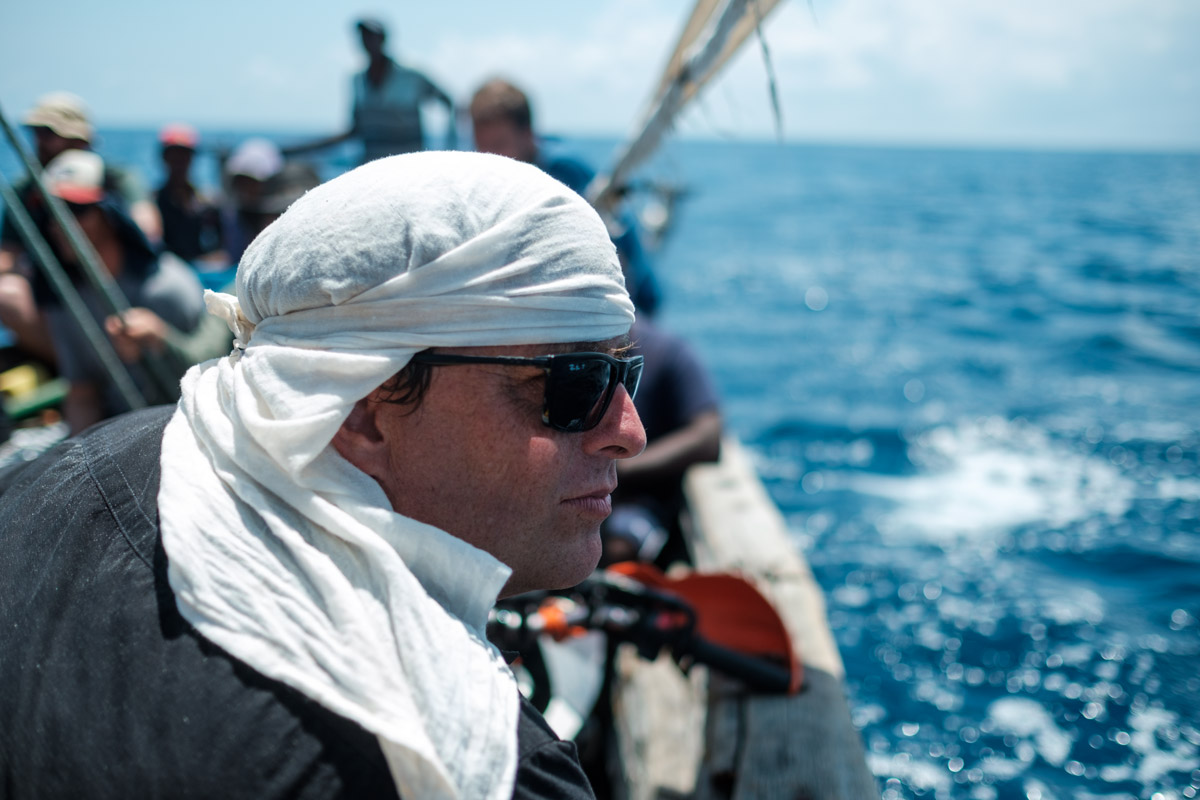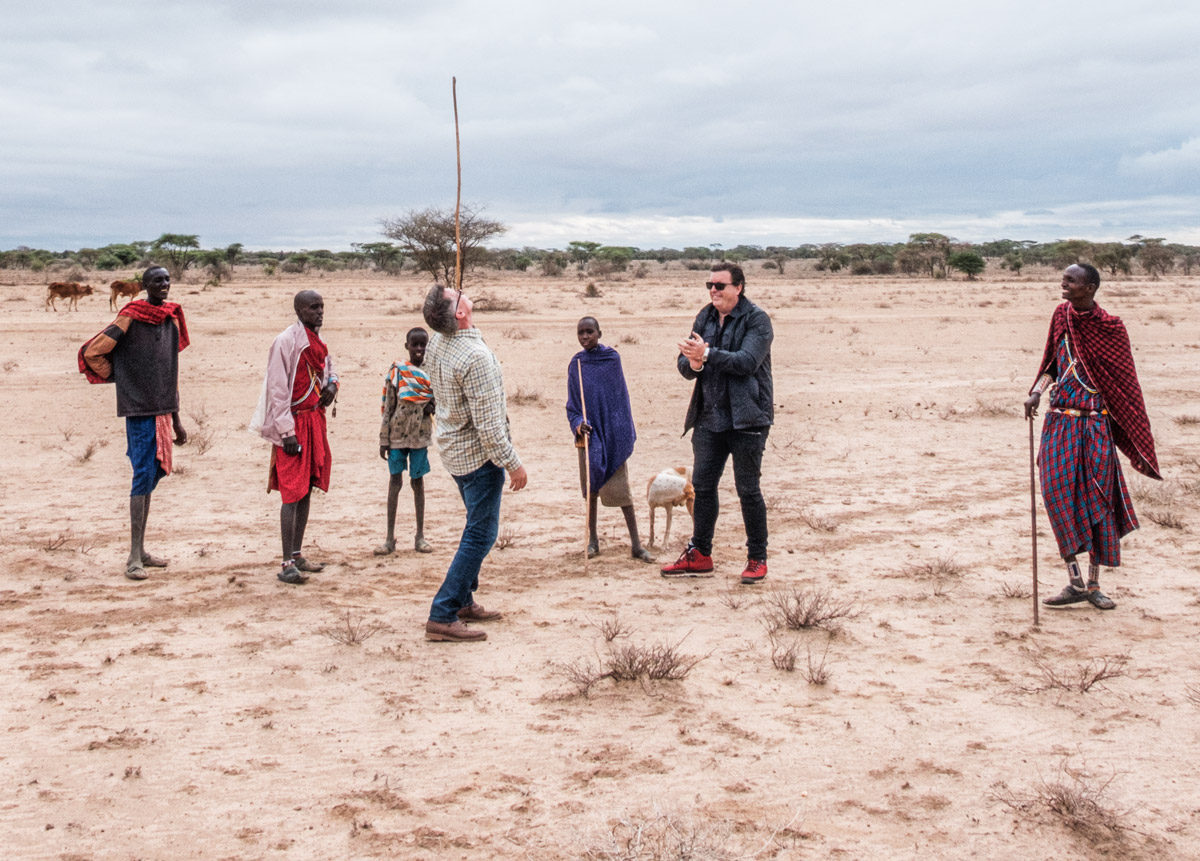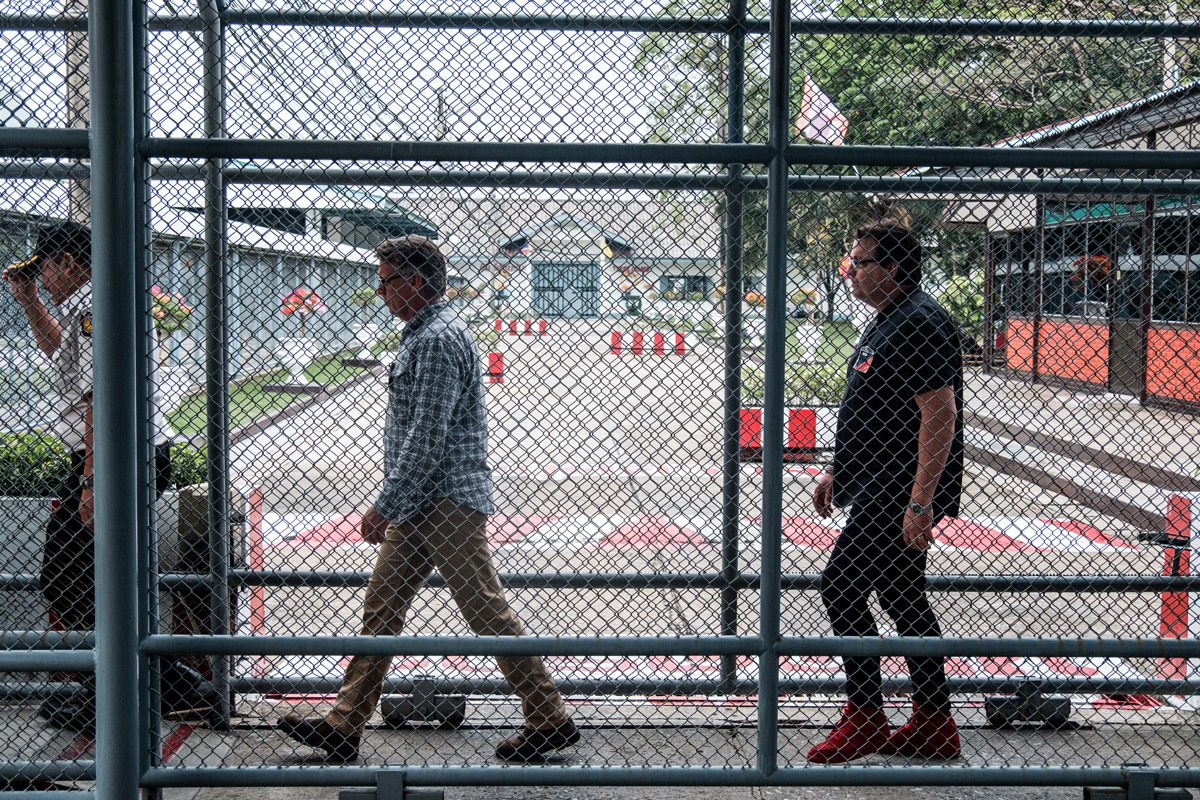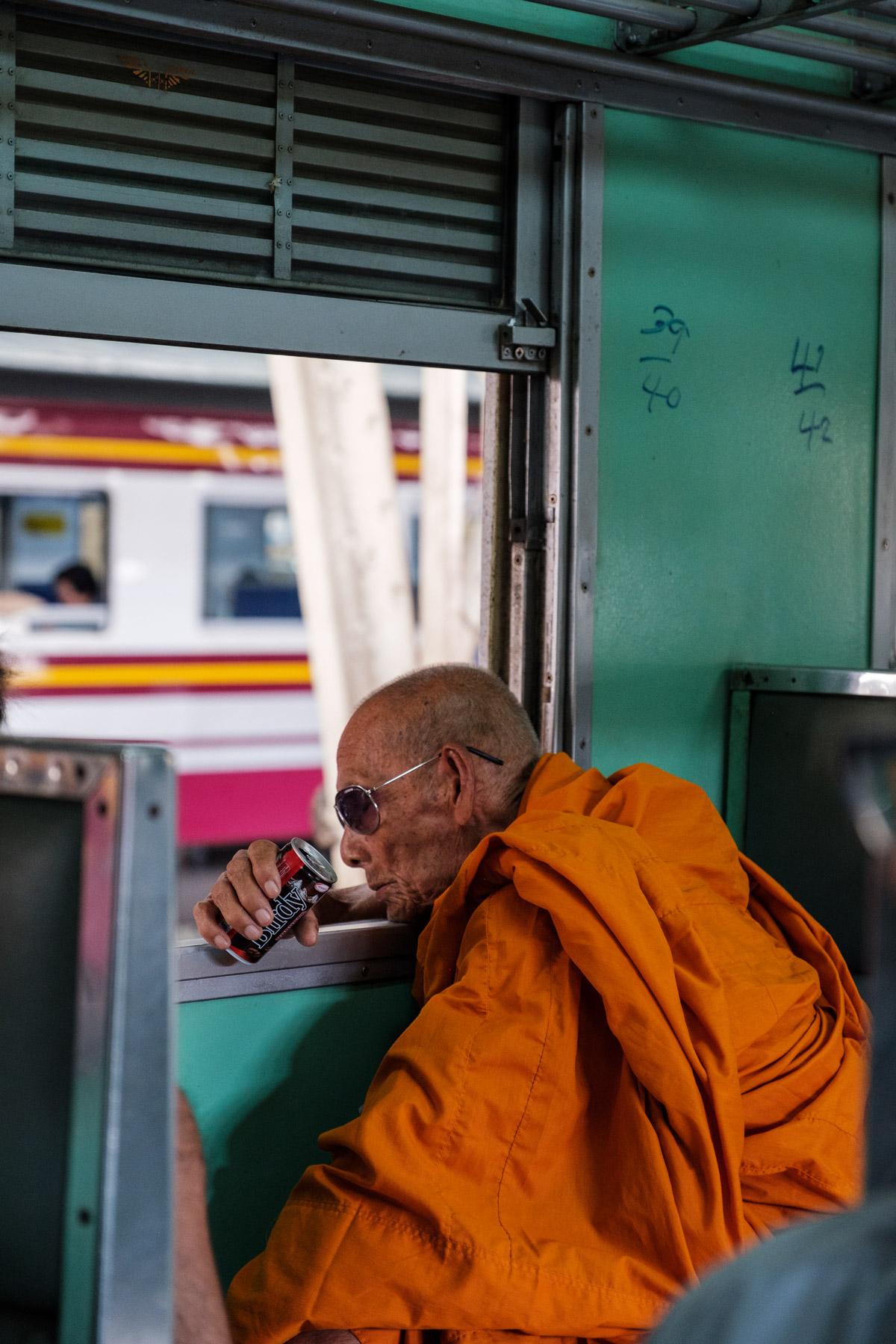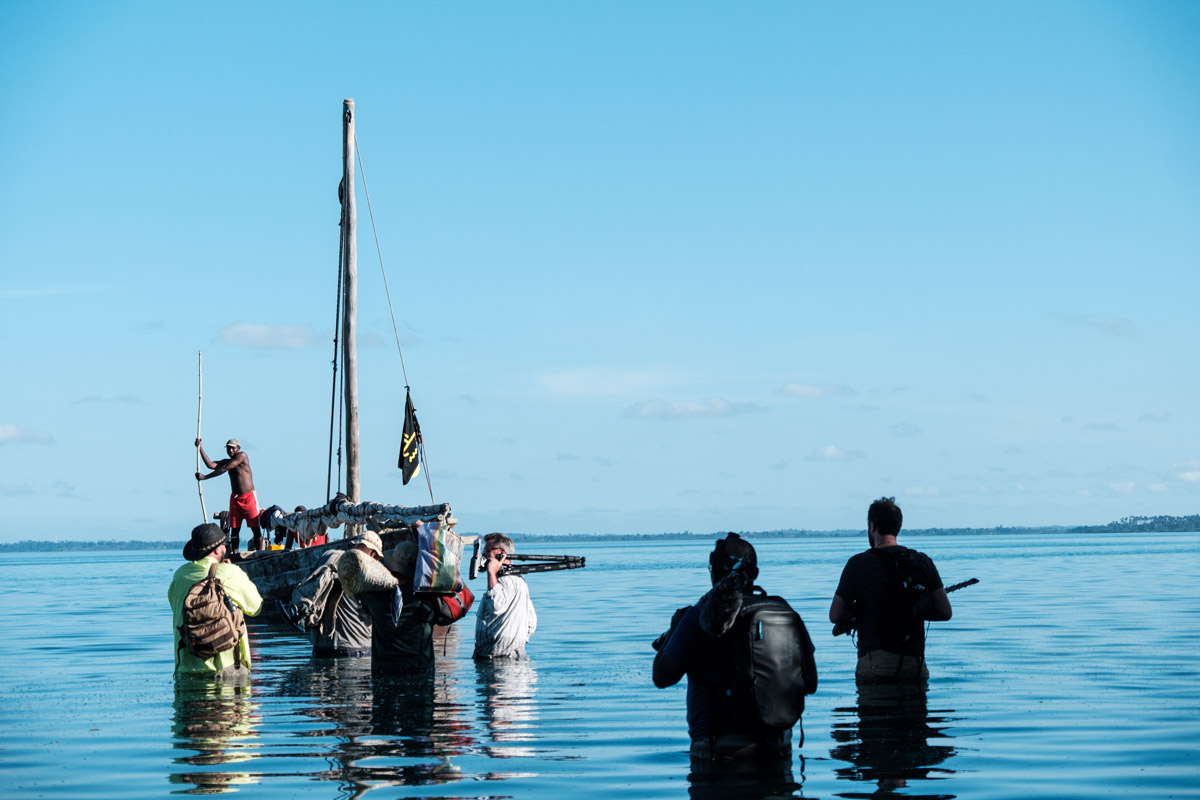The Unbeaten Path
PBS docuseries produced and co-hosted by Baylor alumnus spotlights atypical altruism in unusual areas.
“Two roads diverged in a wood, and I
— I took the one less traveled by,
And that has made all the difference.”
Robert Frost’s iconic poem The Road Not Taken portrays a traveler whose journey reaches a fork in the road. After prudently pondering each possible path, the narrator chooses the one less traveled and portends that this decision will henceforth shape his entire life.
Craig Martin, BA ’88, MA ’95, has traveled many roads, often trapsing less-worn ways. The son of Southern Baptist missionaries, Martin was born in Bangkok and lived in the Thai capital through high school save a few year-long family furloughs in his parents’ native Louisiana.
Since completing his master’s degree in communications, Martin has filmed in war zones, disaster-stricken areas and remote villages in more than 85 countries worldwide. A visual storyteller, filmmaker and writer, Martin spent more than two decades with the International Mission Board (IMB). He has produced hundreds of short- and long-form projects, including the LifeWay Films internationally distributed feature-length docudrama The Insanity of God through Fathom Events.
Today, Martin co-hosts and produces The Good Road, a docuseries about global humanitarianism for which the first season aired on the Public Broadcasting System (PBS) this past spring. The series, presented by WETA-TV in Washington, D.C., explores the precarious philanthropic world through an edgy lens. Martin also produces and hosts the Philanthropology podcast as part of the series’ larger franchise.
Welcome...Home?
Beginning college was more of a transition for Martin than it is for most incoming freshmen. As an MK (missionary kid), he was an American citizen with relatively little experience with or knowledge of the United States. His exposure to American culture came in small Central Louisiana towns and for relatively small pockets of time.
“In a lot of ways, Baylor restored my faith in the United States as a country,” Martin says. “In the public school system in Louisiana, there was a negativity that was pervasive. There was no real vision for what someone could be. Nobody was focused on greatness. Baylor wasn’t that way at all.”
Martin learned of Baylor from the numerous Texans who were a part of the Thailand Baptist Mission, many of whom were Baylor graduates.
“At Baylor, there were people with ideas of who they would be and what they would become, and those usually were grandiose ideas,” Martin says. “From the very beginning, I saw a vision of possibilities.”
However, becoming a filmmaker was not initially a part of that vision. Martin’s first semester at Baylor included participation in Air Force ROTC before he realized his idea of becoming a pilot was not ideal.
“They wanted me to do things like cut my hair,” he says with a laugh. “I had to take at least one math class and be successful in it, which was nearly impossible for me. I have twin teenagers who are both exceptional at math, and they learned to stop asking Dad math questions probably around age 7.”
Eventually, Martin landed in the communications department where he felt at home and quickly gained hands-on experience along with direct interaction with professors. His Baylor undergraduate academic experience in the 1980s was quite different than what one of his friends recently experienced as a graduate student at the University of Southern California — one of the nation’s top-rated programs.
“Even in graduate school, they are very quirky about who gets to touch the equipment,” Martin says of his friend’s time at USC. “At Baylor, I was checking out cameras my junior year. We were allowed to explore things that you wouldn’t be allowed to do at big universities. That was ideal for me.
“Baylor provided me a chance to explore education and the things I wanted to do. People at Baylor shaped my understanding of the U.S. and my understanding of what my career would become. I’m very thankful for that.”
Dr. Michael Korpi, professor of film and digital media, was a significant influence in Martin’s academic experience at Baylor. They met when Martin was an undergraduate student and found a connection in that Korpi had previously been to Thailand twice, filming refugees from Laos and Cambodia after the Vietnam War. Korpi, who has been at Baylor since 1982, was Martin’s graduate advisor.
While Martin was a graduate student, the IMB (then known as the Foreign Mission Board) wanted to produce a film to commemorate the 200th anniversary of William Carey’s mission to India. Dr. Herbert H. Reynolds, then Baylor’s president, raised funds for filming throughout India, and Korpi arranged an internship for Martin to be a part of the production. However, the burgeoning filmmaker’s duties soon ballooned when the producer-director had to leave the project due to a death in the family.
“Craig ended up being in charge,” Korpi says. “It was the camera operator — who wasn’t really a producer, director, writer — and the intern.”
Martin spent roughly a year as production supervisor at KCTF-TV, a predecessor to KWBU-TV. During that time, he covered the events leading up to the Waco siege at the Mount Carmel Center in April 1993.
IMB hired Martin the following year, and he eventually became managing director of communications.
“I wanted to work for the IMB because, at the time, I loved the idea of using media to change people’s minds and raise money or whatever was needed by this organization into which I was basically born,” Martin says.
The trip to India and his vision in working for IMB foreshadowed where his career path now runs.
Finding Light in the Dark
Martin graduated from the International School of Bangkok (ISB), a private American-style PK-12 school in the Pak Kret District of Thailand’s Nonthaburi Province. ISB opened in 1951 and boasts notable alumni such as current U.S. Senator Tammy Duckworth (Illinois), former U.S. Secretary of the Treasury Timothy F. Geithner and former U.S. Trade Representative Susan Schwab.
ISB alumni also include 2006 Pulitzer Prize for Fiction finalist Richard Powers, screenwriter Charles Leavitt (K-Pax), actresses Madolyn Smith (Urban Cowboy) and Mary-Louise Parker (The West Wing), and a pair of Miss Thailand winners.
Earl Bridges, the son of a Vietnam-era Air Force F-4 Phantom pilot turned missionary, moved to Bangkok in the fourth grade and soon befriended Martin. Their friendship strengthened in high school when Bridges’ family returned to Bangkok after a short stint stateside.
“When you signed yearbooks back then, it was assumed you might not ever see that person again,” Bridges says. “Only about 30 percent of our graduating class were Americans, so everyone sort of spread out after graduation.”
Martin and Bridges stayed somewhat in touch after graduation and reconnected more earnestly via Facebook in the late 2000s. Bridges had started a software company that worked with large corporations’ employee-giving programs. He was familiar with Martin’s experience as a filmmaker and world traveler.
“Craig seemed to have this exotic life of being in the most bizarre scenarios,” Bridges says. “We connected on the fact that most charity video media was broken. It felt contrived and insincere. You knew what was going to happen.”
In 2008, fellow ISB graduate Patty Williams, whose father was an Argentine diplomat, founded Global Health Services Network, an international hospital planning, development and management company that focuses on the sustainable improvement of healthcare services and staff competencies in developing countries. Five years later, Williams extended her altruism with the formation of Global Health Charities (GHC).
GHC operates on the belief that all humans should have the opportunity to strive for their full potential, regardless of socio-economic status. The focus is maternal and infant mortality, providing clean birth kits to remote areas worldwide. Bridges was one of GHC’s first board members.
In 2016, Williams and Bridges organized a storytelling trip to Nepal, Myanmar and Vietnam. Martin, whose film The Insanity of God had recently met success, was asked to join the entourage. Williams immediately recognized the personal and professional bond between Bridges and Martin.
“Earl was able to give us all direction, and I saw the birth of what they’re doing now,” Williams says. “Craig is very creative. He easily connects well with people, and they identify with him.”
On the trip, Bridges shared with Martin the idea for a television show. Martin was initially uninterested, but his mindset quickly changed when Bridges described the vision of spotlighting humanitarianism in the style of Anthony Bourdain’s Parts Unknown (CNN, 2013-2018).
“I wanted to do it in a way that wouldn’t bore people,” Bridges says. “Let’s do it in a way that doesn’t make the viewer feel like they’re taking medicine.”
Nepal was devastated by earthquakes in 2015. Martin and Bridges, on their southeast Asia jaunt with Williams, met people who had little concept of the outside world but were heroes in a difficult situation.
“That became the formula for our show,” Bridges says. “Trust that if you go into the most confusing, dark corners, you will find people doing good.”
Martin knew distribution was key based on his experience with The Insanity of God. In order to produce a quality show, they needed to know for what audience they were producing it. Martin and Bridges found little to no interest from commercial networks and eventually found immediate interest from smaller public broadcasting stations. Bridges suggested they pitch the idea to national PBS.
“It’s very hard to get on national television,” Martin says. “With the type of show we’re doing, PBS was the easiest path and the best fit.”
The Good Road premiered in April, and the seven-episode first season continues to be shown on various local PBS affiliates throughout the nation. Each 26-minute episode explores the intersection of community, culture and compassion among people overcoming substantial challenges.
Those Are the Moments
In “River of Change,” the first episode, Martin and Bridges return to Thailand. They analyze Thai history and the importance of Chao Phraya — a major river with a low alluvial plain that forms the country’s center. They also visit a community along the Klong Toey river and examine effective efforts amid prevalent poverty.
Subsequent episodes find the storytellers in the isolated islands of the Zanzibar Archipelago in Tanzania; at a neonatal intensive care unit (NICU) in a remote part of Eastern Uganda, where a husband-and-wife doctor team address rampant infant mortality; twice in remote parts of Kenya; and again in Bangkok, this time at a Thai prison. The lone episode set in America chronicles the abundant hope in Alabama Village, a violent, impoverished neighborhood in the Mobile suburb of Pritchard.
Martin says he has been struck by the complexity to each person’s story, something he witnessed while talking with a group of drug dealers in Alabama Village.
“They have guns, and they have drugs, but you start talking with them,” he says. “Some of them grew up in homes with no running water or electricity, or the parents or parent is an addict. In reality, none of those kids wakes up and says, ‘I can’t wait to be a drug dealer.’ It’s the opportunity that was afforded them.”
Bridges originally planned to do the storytelling while Martin filmed, but a different method quickly developed. After discussing that most people don’t travel alone, the duo decided to bring Martin from behind the camera.
“Craig has zero poker face,” Bridges says. “When the guns are going off in Alabama Village, Craig’s face shows. If something goes bad, he has a hard time hiding it. Craig was never really in front of the camera, but he’s perfect for our show. When you want to see empathy, you see it in Craig, and it’s not contrived.”
The Good Road series finale is set in the oppressive Myanmar. The hosts glean wisdom from Burmese punk rocker Kyaw Kyaw (pronounced Joe Joe), who helps street kids in the capital city of Yangon through the organization Books Not Bombs. Martin vividly remembers an interview in which Kyaw Kyaw acknowledged his tendency to criticize the government and organized religion for not addressing poverty before turning the tables.
“He said, ‘I criticize everybody, and then I realized, but I don’t criticize myself,’” Martin says. “Those are the moments. He has this positive view on how to make the world better.”
Williams says the show’s positive storytelling is a breath of fresh air.
“We focus so much on the negative things that happen, and yet there’s so much good,” she says. “Those stories don’t get told enough.”
More stories will be told as a second season of The Good Road is in the works. Season 2 will include more domestic material, something Martin says was a necessity due to the COVID-19 pandemic. One such episode will center around Martin’s current place of residence — Richmond, Virginia.
“As the capital of the Confederacy, Richmond has been the flashpoint for a lot of conflict,” Martin says. “That episode will focus on things like racial conciliation.”
The second season will also feature more vignettes from international locations, material culled over the past four years.
“When we started the show, we were thinking one-hour episodes,” Martin says. “We easily had enough content to fill 30 minutes and left a lot of it on the cutting-room floor. We will reintroduce some of that international material in the second season.”
More information about The Good Road, including air dates and times, is available online at GoodRoad.tv.
